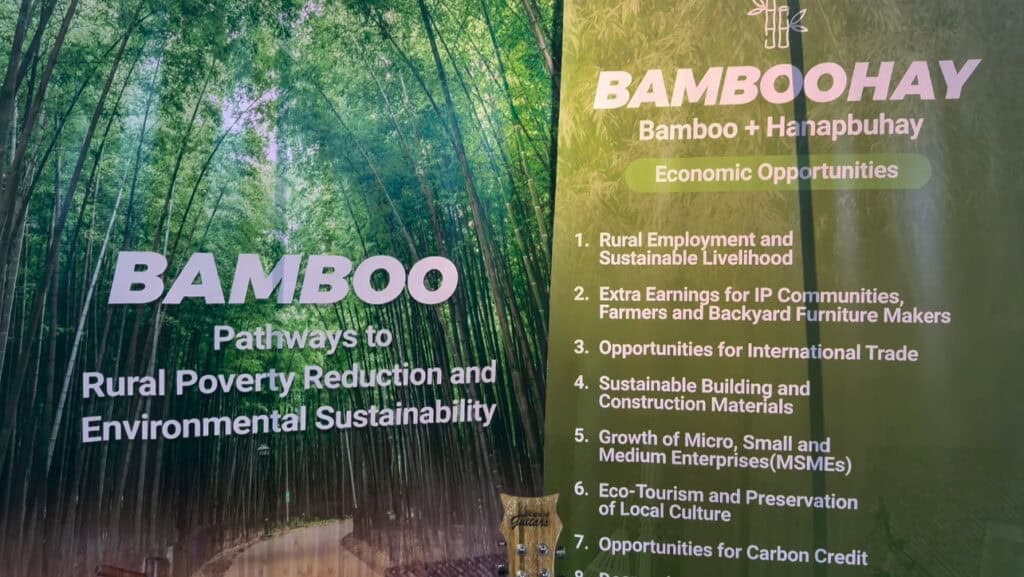As the Conference of the Parties (COP29) concluded its negotiations last Sunday in Baku, Azerbaijan, several notable proposals from the sidelines were championed by Filipino clergy and lawmakers.
Bishop Gerry Alminaza of the Diocese of San Carlos represented the Catholic Bishops’ Conference of the Philippines (CBCP). In various side events, he discussed the clergy’s initiative to install 10 million solar panels across the country.
“We are appealing, we are calling on, of course, using the network of the church to engage people. This is important as an approach, but it’s really about involving more people. It’s empowering, making people participate and take responsibility for our future and for our environment,” said Bishop Alminaza.
The Diocese of Maasin is the pilot area for this initiative, where all churches and schools under its jurisdiction are already powered by solar energy. Currently, efforts are underway to encourage other ministries and parishes to adopt the same model.
Even lay groups are joining the cause. Catholic Relief Services (CRS) is conducting research and mapping climate hazards.
“The goal of the project is to enhance the adaptive capacity of our cities to the impacts of climate change,” said Project Director Allan Silayan.
Nature-Based Solutions and Bamboo Innovation
Philippine lawmakers also presented nature-based solutions at COP29, including the promotion of bamboo as an alternative material in various industries. Bukidnon Representative Jose Alba discussed how bamboo can help revitalize local economies.
“With bamboo, we are able to provide economic opportunities in towns and communities. People don’t have to leave because bamboo is readily available in their areas,” said Alba.
A display of a bamboo guitar and skateboard was showcased at the Philippine Pavilion, drawing attention to the material’s versatility and potential.
Climate Change Performance
The Philippines currently ranks 7th in the 2024 Climate Change Performance Index, recently released by the non-governmental organization Germanwatch. This ranking places the country among the top performers in terms of energy use, greenhouse gas emissions, climate policy, and renewable energy.
Being in the top 10 is significant, as the Philippines is the only ASEAN country in the first 20, with Vietnam following at 21st. The index did not rank any countries in the top three due to slow progress in the four categories assessed. Germany was ranked 4th.
Gio Pradipta, Policy Adviser for Germanwatch, noted that the Philippines has performed well due to its consistently low greenhouse gas emissions—among the lowest in Southeast Asia and globally. However, he emphasized that there is still room for improvement.
“The Philippines has been performing well because its GHG emissions have always been among the lowest in Southeast Asia and the world. But like all countries, they need to do more,” Pradipta said.
He praised the Philippines’ Nationally Determined Contribution (NDC) Implementation Plan, which was published in 2024 and is awaiting full implementation. However, Pradipta cautioned that the country needs better funding to meet its ambitious climate targets.
“Philippines is very ambitious with its climate targets. There is a chance that the country will serve as an example for Southeast Asia and Asia on how to implement better climate policy,” Pradipta added.
The Climate Change Performance Index is designed to assess countries’ efforts to meet the Paris Agreement, the global climate treaty initiated by the United Nations Framework Convention on Climate Change.
Civil Society Disappointment at COP29 Progress
Despite the positive news regarding the Philippines’ climate performance, civil society organizations based in the Philippines expressed disappointment with the outcomes of COP29.
“We are not exactly surprised by the slow progress of the negotiations, but nonetheless, we are very disappointed with the lack of progress on many of the key issues here at COP29,” said John Leo Algo, National Coordinator of Aksyon Klima.
As of Saturday morning, negotiators had agreed to provide at least $300 billion for the New Collective Quantified Goal (NCQG), also known as the Climate Finance Goal. This amount is intended to be allocated by developed countries to those severely affected by climate change.
Algo also pointed out that some issues of particular importance to the Philippines, such as just transition policies, were not adequately addressed.
“We were surprised by the lack of focus on agriculture and food security, especially in terms of food production,” Algo added.
In the aftermath of COP29, Algo and other organizations will focus their efforts on pushing for advocacy at the national level, such as advocating for a fair carbon market, reducing climate pollution, and securing funding for loss and damage.
A Call for More Action
Lidy Nakpil, Coordinator of the Asian People’s Movement on Debt and Development, condemned the COP29 outcome as inadequate.
“The outcome of COP29 is an outrageous insult to the people of the Global South. The paltry amount offered not only falls far short of the trillions we are owed, but it will also be delivered in the form of private finance and loans that will deepen the debt burdens of already impoverished countries,” Nakpil said.
In the Philippine context, this deal means the country will receive a very small portion of the global fund.
“This amount will be spread across more than 150 developing countries. How much will the Philippines lose in terms of loss and damage? It is deeply insulting. In our own words, inyo na pera niyo! This is going to leave us high and dry, even though we are not the ones responsible for the suffering,” Nakpil added.
Civil society groups are calling on the Philippine government to stand firm and demand a more significant share of the global funds.
The Philippine Movement for Climate Justice (PMCJ) warned that the current deal would have severe consequences.
“We needed the finance right now. Our negotiators must reopen this issue at COP30. This will mean death and destruction for many people because we are already suffering,” said Ian Rivera of PMCJ.
International organizations also expressed discontent with the decision.
“It is insufficient and inadequate. We know the devastating causes of climate change. We need the finance. There is no shortage of money, only a lack of political will. Developed countries have no political will,” said Asad Rehmad from the Global Campaign to Demand Climate Justice.
A week from today, the United Nations Board for Loss and Damage will convene to discuss the next steps. I Annie Perez


